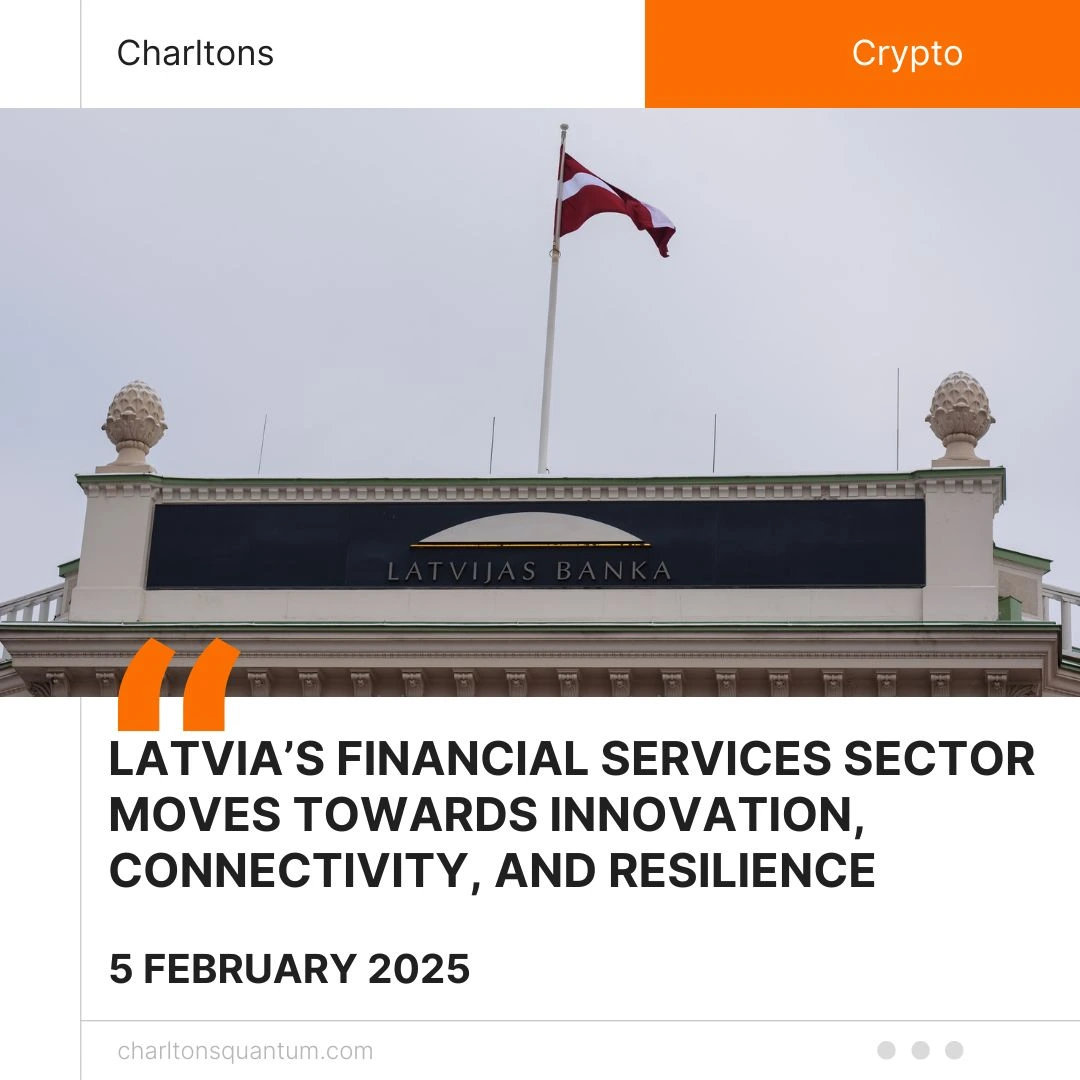
On 28 January 2025, Latvia’s central bank, Latvijas Banka, published an update outlining its vision for the future of financial services in the country. The update, authored by Marine Krasovska, Head of Financial Technology Supervision Department at Latvijas Banka, discusses an ambitious strategy focusing on digital innovation, enhanced regulatory frameworks, cybersecurity resilience, and the integration of traditional and emerging financial services. The update sets forth policy directions that apply to banks, fintech firms, payment service providers, and crowdfunding platforms.
The next phase of transformation is expected to leverage European Digital Strategy initiatives, fostering a collaborative framework between fintech firms, traditional banks, and new financial service providers.
The future of financial services in Latvia will be shaped by new regulatory obligations under European and domestic legislation. The implementation of the EU AI Act and the EU Digital Operational Resilience Act (EU DORA) is set to bring oversight, transparency, and security to the industry. These regulations apply to financial institutions, fintech startups, payment service providers, and cloud service operators, establishing compliance requirements in AI governance, operational risk management, and cybersecurity protocols.
Under the EU AI Act, financial institutions operating in Latvia must adhere to strict standards for AI-powered financial services to ensure that automation and machine learning models used in banking, risk assessment, and customer interactions meet transparency, fairness, and security requirements. Institutions that incorporate AI for fraud detection, credit scoring, or algorithmic trading must ensure that these systems align with the highest standards of reliability and accountability.
With the introduction of EU DORA, financial entities are now required to enhance their cybersecurity frameworks to protect financial data, prevent service disruptions, and mitigate operational risks. The obligations under EU DORA include strengthened third-party risk management, mandatory incident reporting, penetration testing, and improved IT governance.
Latvia’s financial landscape is evolving towards a interconnected and dynamic ecosystem that integrates fintech innovation, digital payments, and decentralised finance models. Latvijas Banka is actively encouraging collaboration between fintech startups and traditional banking institutions, with a focus on seamless interoperability between fiat currencies, crypto-assets, and stablecoins.
The anticipated introduction of the digital euro is expected to enhance payment infrastructure, improve transaction efficiency, and enable more secure cross-border payments. Stablecoins and tokenised financial products could further streamline transactions, offering businesses and consumers greater flexibility in their financial interactions. Retailers in Latvia could soon accept payments in euros, stablecoins, and the digital euro through a single payment gateway.
At the end of 2024, Latvijas Banka initiated the development of a national fintech strategy aimed at attracting foreign investment. The strategy focuses on international outreach, fintech promotion, regulatory development, and access to capital.
With the financial sector becoming increasingly reliant on cloud computing, artificial intelligence, and digital payment systems, cybersecurity risks have escalated. Latvijas Banka’s research indicates a rapid increase in cloud adoption, rising from 14 market participants in 2021 to 46 in 2024, highlighting the growing reliance on cloud-based financial infrastructure.
The implementation of EU DORA in 2025 will introduce mandatory cybersecurity compliance measures for financial entities in Latvia. Banks, payment service providers, and digital lenders will be required to strengthen their cybersecurity measures, report security incidents, and conduct periodic risk assessments. Third-party service providers, including cloud computing and IT infrastructure companies, will also be subject to oversight and compliance obligations to prevent overreliance on any single provider.
Crowdfunding services, though still in their early stages in Latvia, are gaining traction as an alternative financing method for small businesses and entrepreneurs. By reducing reliance on traditional banking loans, these platforms enable faster and more efficient capital access, especially for startups and small enterprises.
AI-powered decision-making is expected to enhance digital lending services by automating credit risk assessment, enabling alternative credit scoring methods, and improving the speed of loan approvals. Latvijas Banka is working on initiatives that could expand guarantee programmes for digital lending, ensuring broader financial inclusion and access to credit.
The regulatory measures outlined by Latvijas Banka are set to take effect gradually, with DORA enforcement beginning in 2025 and the EU AI Act already in effect. The national fintech strategy is in the final coordination phase, with implementation expected to commence by the second half of 2025.





